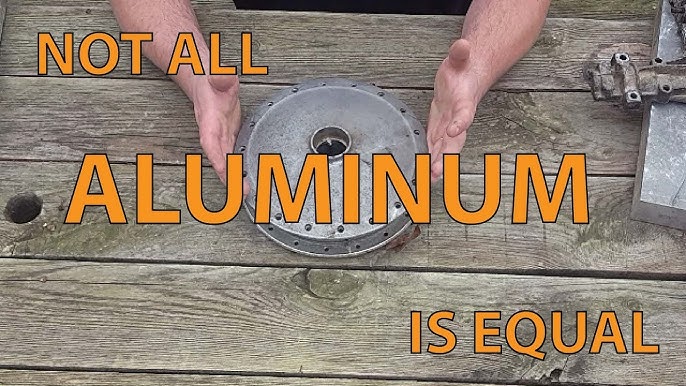Stahl Specialty Company Fundamentals Explained
Table of ContentsStahl Specialty Company Fundamentals Explained8 Simple Techniques For Stahl Specialty CompanyWhat Does Stahl Specialty Company Do?A Biased View of Stahl Specialty CompanyRumored Buzz on Stahl Specialty Company
The subtle difference exists in the chemical content. Chemical Contrast of Cast Light weight aluminum Alloys Silicon advertises castability by reducing the alloy's melting temperature level and improving fluidness during casting. It plays a crucial function in enabling intricate mold and mildews to be filled up properly. In addition, silicon contributes to the alloy's toughness and wear resistance, making it beneficial in applications where resilience is crucial, such as auto parts and engine elements.It likewise enhances the machinability of the alloy, making it easier to process right into ended up items. In this means, iron adds to the overall workability of aluminum alloys.
Manganese adds to the toughness of light weight aluminum alloys and boosts workability. It is generally utilized in wrought aluminum products like sheets, extrusions, and accounts. The visibility of manganese aids in the alloy's formability and resistance to cracking throughout construction procedures. Magnesium is a lightweight component that provides toughness and impact resistance to light weight aluminum alloys.
It permits the manufacturing of lightweight elements with exceptional mechanical residential properties. Zinc enhances the castability of light weight aluminum alloys and aids manage the solidification process during spreading. It boosts the alloy's strength and firmness. It is commonly found in applications where elaborate shapes and fine information are necessary, such as decorative spreadings and particular auto parts.
Stahl Specialty Company - The Facts
Since aluminum-silicon alloys have good spreading residential properties, high gas residential or commercial properties, easy procedures, and outstanding deterioration resistance, aluminum-silicon alloys are most typically utilized in the die-casting industry in the house and abroad. At the same time, aluminum-silicon alloys are likewise relatively very early and widely acknowledged alloys developed and utilized in die-casting. After constant research and enhancement, a lot of the existing global mainstream aluminum-silicon alloys have actually been finalized and are absolutely nothing greater than A356, A360, A380, ADC12, B390, and A413.
The main thermal conductivity, tensile strength, return strength, and elongation differ. Among the above alloys, A356 has the highest thermal conductivity, and A380 and ADC12 have the lowest.

Some Known Details About Stahl Specialty Company
In accuracy casting, 6063 is appropriate for applications where detailed geometries and top quality surface area finishes are critical. Examples include telecommunication units, where the alloy's premium formability allows for streamlined and cosmetically pleasing designs while maintaining architectural integrity. Similarly, in the Illumination Solutions market, precision-cast 6063 components produce stylish and reliable lights fixtures that call for elaborate shapes and excellent thermal performance.
(https://stahlspecialc.weebly.com/)
The A360 displays remarkable prolongation, making it suitable for complex and thin-walled components. In accuracy casting applications, A360 is fit for industries such as Customer Electronic Devices, Telecommunication, and Power Tools.

In accuracy casting, aluminum 413 radiates in the Customer Electronic Devices and Power Tools sectors. It's generally used to craft detailed parts like mobile phone real estates, cam bodies, and power tool coverings. Its precision is remarkable, with limited tolerances up to 0.01 mm, making sure flawless product assembly. This alloy's remarkable corrosion resistance makes it a superb selection for outside applications, ensuring long-lasting, sturdy items in the pointed out markets.
Stahl Specialty Company - An Overview
The light weight aluminum alloy you choose will significantly influence both the casting process and the residential or commercial properties of the final item. Because of this, you must make your decision carefully and take an informed approach.
Determining the most ideal light weight aluminum alloy for your application will certainly suggest considering a large array of features. The very first classification addresses alloy characteristics that impact the manufacturing process.
The alloy you select for die spreading directly affects numerous facets of the casting process, like just how easy the alloy is to function with and if it is vulnerable to casting flaws. Hot cracking, additionally referred to as solidification fracturing, is a typical die casting issue for light weight aluminum alloys that can result in internal or surface-level tears or splits.
The Best Guide To Stahl Specialty Company
Certain light weight aluminum alloys are more susceptible to warm fracturing than others, and your choice should consider this. Foundries in Missouri. It can harm both the cast and the die, so you need to look for alloys with high anti-soldering properties.
Rust resistance, which is currently a noteworthy attribute of light weight aluminum, can differ significantly from alloy to alloy and is a vital particular to think about depending on the ecological problems your product will certainly be exposed to. Put on resistance is one more residential or commercial property frequently looked for in aluminum products and can set apart some alloys.